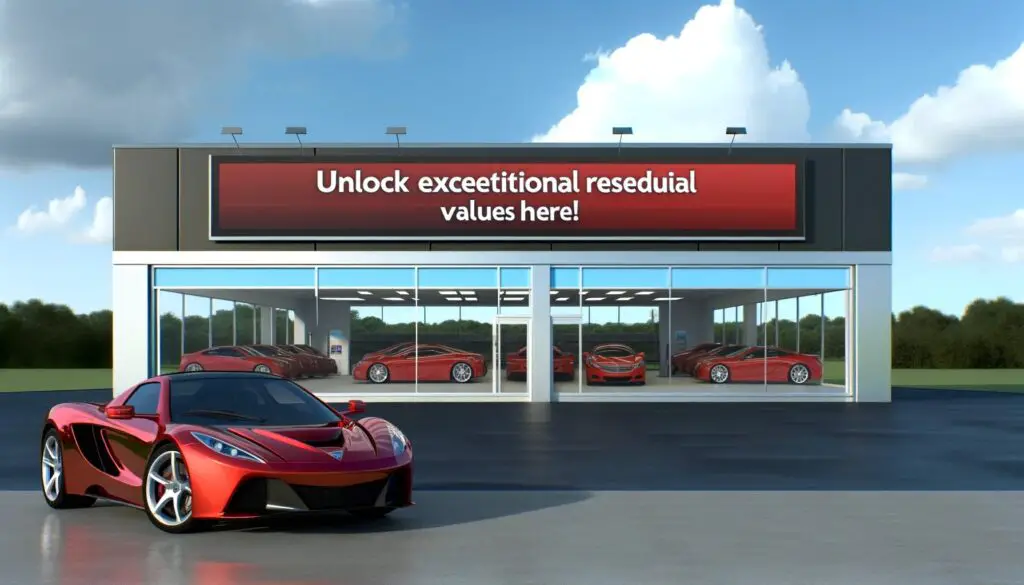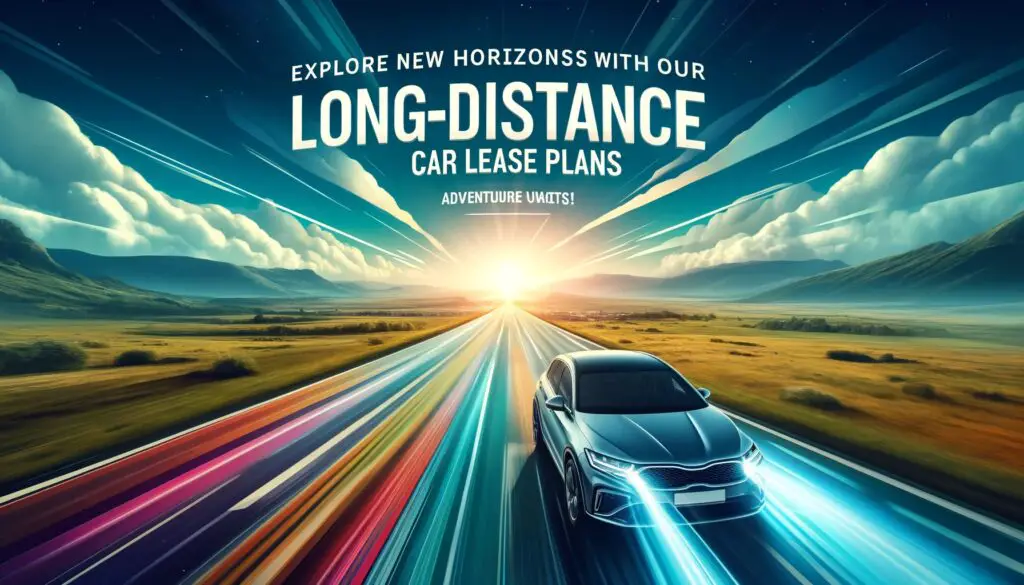In today’s fast-paced world, the popularity of SUVs has surged, and for good reason. These versatile vehicles offer a blend of space, comfort, and style that appeals to a wide range of consumers. If you’re in the market for an affordable SUV lease under $200 per month, you’ve come to the right place. In this comprehensive guide, we’ll explore the ins and outs of SUV leasing, helping you make an informed decision that aligns with your budget and transportation needs.
SUVs’ Popularity Surge
SUVs have witnessed a remarkable surge in popularity within the automotive industry, and this phenomenon can be attributed to a combination of compelling factors:
- Versatility: SUVs are incredibly versatile vehicles, available in various sizes ranging from compact to full-sized models. This versatility caters to a wide range of consumer preferences, accommodating both individuals and families.
- Spacious Interiors: One of the standout features of SUVs is their capacious interiors. These vehicles offer ample passenger and cargo space, making them an excellent choice for families, road trips, and daily commuting. The generous interior room ensures comfort for all occupants and provides the flexibility needed for transporting groceries, sports equipment, or luggage.
- Higher Driving Position: SUVs provide drivers with an elevated seating position compared to traditional sedans or compact cars. This elevated viewpoint offers several advantages, including enhanced visibility on the road. Drivers can enjoy a clear and commanding view of their surroundings, improving safety and overall driving experience.
- Towing Capacity: Many SUVs come equipped with impressive towing capabilities. This feature makes them a practical choice for individuals who need to tow trailers, boats, or other heavy loads. Whether you’re hauling recreational equipment or moving household items, an SUV’s towing capacity adds an extra layer of utility.
- All-Weather Capability: A significant advantage of SUVs is their availability with all-wheel or four-wheel drive options. This feature enhances traction and stability, particularly in adverse weather conditions such as rain, snow, or mud. SUVs’ all-weather capability ensures that drivers can confidently navigate challenging terrains and maintain control in slippery situations.
In summary, the surge in SUVs’ popularity can be attributed to their unmatched versatility, spacious interiors, elevated driving position, towing capabilities, and all-weather performance. These combined features make SUVs a preferred choice for a diverse range of consumers, addressing various transportation needs and preferences.
Leasing an SUV can be an attractive alternative to buying, especially if you’re looking for a budget-friendly option. When you lease a vehicle, you essentially rent it for a set period, typically 2 to 3 years, and return it when the lease term ends. Here are some key advantages of SUV leasing:
Understanding SUV Leasing
When it comes to obtaining a new SUV, it’s essential to grasp the fundamental difference between leasing and buying:
Leasing vs. Buying
Leasing provides you with the opportunity to enjoy all the advantages of driving a brand-new SUV without committing to long-term ownership or the higher monthly payments that typically come with buying. Instead of taking on the responsibility of owning the vehicle outright, leasing allows you to essentially “rent” the SUV for a specified period, usually ranging from 2 to 3 years. During this lease term, you make monthly payments that cover the SUV’s depreciation and any applicable fees, such as interest and taxes.
The key distinction here is that with leasing, you’re not taking on the burden of long-term ownership. Once the lease term concludes, you have the flexibility to return the SUV to the dealership. This means you’re not concerned with the SUV’s long-term resale value or the challenges of selling or trading in the vehicle when you’re ready for something new.
In contrast, when you buy an SUV, you become its outright owner. While this grants you full ownership rights and the freedom to keep the vehicle for as long as you desire, it also entails higher upfront costs and typically higher monthly loan payments. Additionally, you bear the responsibility of managing the SUV’s maintenance and any potential resale or trade-in value down the road.
In summary, leasing provides an attractive alternative to buying an SUV by offering the benefits of a new vehicle without the extended commitment and financial obligations associated with ownership. This flexibility is a significant draw for individuals who prioritize the enjoyment of driving a new SUV without the long-term commitment.
Benefits of Leasing
Leasing an SUV comes with several compelling advantages that make it an appealing choice for many consumers:
1. Access to Advanced Features
One of the primary benefits of leasing is the opportunity to drive the latest SUV models equipped with cutting-edge technology and safety features. Automakers are continually innovating and introducing new advancements in their vehicles. When you lease, you can stay at the forefront of automotive technology, enjoying features such as adaptive cruise control, advanced infotainment systems, and state-of-the-art safety systems. This access to advanced features enhances your driving experience and ensures that you’re benefiting from the latest in automotive innovation.
2. No Worrying About Depreciation
One of the most significant advantages of leasing is that you won’t be affected by the SUV’s depreciation. Depreciation is the decrease in the vehicle’s value over time, and it’s a natural occurrence with any car. However, when you lease, you’re essentially renting the SUV for a predetermined period. At the end of the lease term, you return the vehicle to the dealer. This means you’re not responsible for the SUV’s long-term depreciation or its potential impact on resale value. You can enjoy the SUV while it’s at its highest value, and when the lease ends, you can simply move on to a new model without the concern of the SUV’s future market worth.
3. Upgrade Flexibility
Leasing offers remarkable flexibility when it comes to upgrading your vehicle. At the end of your lease term, you have the option to transition to a new SUV with updated features or technology. This means you can regularly enjoy the latest automotive advancements without being tied to a single vehicle for an extended period. If you desire the newest safety features, improved fuel efficiency, or simply want to experience a different SUV model, leasing allows you to do so with ease. The ability to upgrade provides a level of convenience and adaptability that buying a vehicle may not offer.
In summary, the benefits of leasing an SUV encompass access to advanced features, freedom from worrying about depreciation, and the flexibility to upgrade to a new and improved model at the end of your lease term. These advantages make leasing an attractive choice for individuals who appreciate driving the latest vehicles while avoiding the long-term commitments and financial concerns associated with ownership.
Factors Influencing SUV Lease Prices
Several factors can influence the monthly lease price of an SUV:
When considering leasing an SUV, it’s crucial to understand the various factors that can influence the monthly lease price. These factors play a significant role in determining the cost of your lease:
1. Make and Model
The make and model of the SUV you choose can have a substantial impact on the monthly lease rate. Luxury brands or high-demand models tend to come with higher monthly lease rates. This is because these vehicles often have a higher initial purchase price, which translates into higher depreciation costs during the lease term. It’s essential to weigh the prestige and features of a particular make and model against your budget and preferences.
2. Trim Level and Optional Features
The trim level and optional features you select can also affect the lease cost. Upgrading to a higher trim level or adding optional features such as advanced technology, premium audio systems, or upgraded upholstery can increase the overall price of the SUV. Consequently, this results in higher monthly lease payments. While these upgrades can enhance your driving experience, it’s essential to balance them with your budgetary considerations.
3. Lease Terms
The length of the lease term plays a critical role in determining your monthly payments. Shorter lease terms, typically spanning 24 to 36 months, often come with higher monthly payments but offer less long-term commitment. Conversely, longer lease terms can result in lower monthly payments but may require you to keep the SUV for a more extended period. It’s essential to align the lease term with your financial preferences and how frequently you’d like to upgrade to a new vehicle.
4. Duration
The duration of the lease term is closely related to the lease terms but is worth highlighting separately. Shorter leases are associated with higher monthly payments but allow you to change vehicles more frequently. Longer leases generally have lower monthly payments but require a more extended commitment to the same SUV. Consider your driving habits and how long you intend to keep the vehicle when choosing the lease duration.
5. Mileage Restrictions
Most SUV leases come with predetermined mileage limits, typically stated as an annual mileage allowance. Exceeding these mileage limits during the lease term can result in additional charges, commonly calculated on a per-mile basis. It’s essential to estimate your annual driving needs accurately and choose a mileage allowance that aligns with your usage patterns to avoid unexpected fees.
6. Market Incentives and Promotions
Dealerships often run special promotions and incentives that can significantly impact your monthly lease costs. These promotions may include reduced interest rates, cashback offers, or lowered down payment requirements. Be sure to keep an eye out for these deals, as they can provide opportunities to secure a more affordable lease.
In summary, the monthly lease price of an SUV is influenced by factors such as the make and model, trim level and optional features, lease terms and duration, mileage restrictions, and market incentives and promotions. Understanding these factors and carefully evaluating your preferences and budget can help you make an informed decision when leasing an SUV.
Researching SUV Lease Deals
When hunting for affordable SUV leases, it’s essential to conduct thorough research to find the best deal that suits your needs and budget. Here’s how to go about it:
Utilizing Online Resources
- Lease Aggregator Websites: Explore dedicated websites such as LeaseTrader and Swapalease. These platforms allow you to browse a wide range of available SUV lease deals in your local area. They often feature detailed listings that include information about the SUV’s make, model, lease terms, and monthly payments. This makes it easy to compare multiple offers and identify attractive deals.
- Manufacturer Websites: Visit the official websites of SUV manufacturers. Automakers frequently showcase their current lease offers and incentives online. These official sources provide accurate and up-to-date information on available SUV models, lease terms, and any manufacturer-specific promotions. Exploring these websites can provide insights into special lease programs and discounts.
Importance of Local Dealerships
- Local Dealerships: Don’t underestimate the value of local dealerships. Often, local dealers have exclusive deals and promotions that may not be available through online aggregators. Visiting nearby dealerships allows you to establish a direct relationship with sales representatives who can offer personalized assistance and information on local market conditions.
Personal Insights and Negotiation Opportunities
- Using Lease Comparison Tools: Take advantage of online lease comparison tools available on various automotive websites. These tools enable you to input specific lease details, such as down payment, lease term, and mileage allowance. The tool then generates a side-by-side comparison of multiple lease offers, helping you identify the most cost-effective option. This data-driven approach ensures you get the best value from your lease.
Evaluating SUV Models for Lease
When selecting an SUV to lease, consider the following factors:
- Balancing Affordability, Reliability, and Features: Prioritize your individual needs and preferences while staying within your budget. Look for SUV models that offer the right balance between affordability, reliability, and desired features.
- Safety Considerations: Examine the safety features and ratings of prospective SUVs. Ensure that the vehicle provides a secure driving experience for you and your passengers. Look for SUVs equipped with advanced safety technologies like adaptive cruise control, lane-keeping assist, blind-spot monitoring, and automatic emergency braking.
- Crash-Test Ratings: Investigate the SUV’s crash-test ratings from authoritative sources such as the National Highway Traffic Safety Administration (NHTSA) and the Insurance Institute for Highway Safety (IIHS). These ratings provide valuable insights into the vehicle’s safety performance in various collision scenarios.
- Fuel Efficiency and Eco-Friendly Options: If fuel efficiency is a priority, consider SUV models that offer competitive gas mileage or explore hybrid and electric SUVs. Eco-friendly options can help you save on fuel costs and reduce your environmental footprint.
- Cargo Space and Passenger Capacity: Assess the SUV’s cargo space and seating capacity to ensure it aligns with your requirements. Depending on your needs, you may prioritize ample cargo space for family trips or passenger capacity for carpooling and group outings.
By following these steps and conducting thorough research, you’ll be well-equipped to find an affordable SUV lease deal that not only fits your budget but also meets your specific preferences and requirements. Making an informed decision ensures that you get the most value from your SUV leasing experienc
Negotiating a Favorable SUV Lease
To secure the best possible lease deal, it’s essential to understand key lease terminology and research average lease prices:
Key Lease Terminology
- Capitalized Cost: This figure represents the SUV’s purchase price or its negotiated value. During lease negotiations, it’s essential to work towards lowering the capitalized cost as it directly impacts your monthly payments. You can achieve this by negotiating with the dealership or considering manufacturer incentives and rebates.
- Money Factor: The money factor is similar to an interest rate in a lease agreement. It plays a significant role in determining your monthly lease payments. A lower money factor results in lower monthly costs, so it’s advisable to inquire about this rate and negotiate for the best possible terms.
- Residual Value: The residual value is the estimated worth of the SUV at the end of the lease term. It’s essential to understand how this value is calculated and negotiate for a higher residual value when possible. A higher residual value can lead to lower monthly payments.
- Researching Average Lease Prices: Before entering negotiations, research and compare average lease prices for your chosen SUV model. This information provides you with a baseline for evaluating the lease deal offered by the dealership. Knowing the market average empowers you to negotiate from a position of knowledge.
Considering Additional Costs
In addition to your monthly lease payment, it’s vital to factor in the following expenses:
- Insurance: Ensure that you have adequate insurance coverage for the leased SUV. Most leases require comprehensive coverage, so consult with your insurance provider to understand the associated costs.
- Maintenance: Budget for routine maintenance and repairs during the lease term. Proper vehicle maintenance is essential to avoid excessive wear and tear charges at the end of the lease. Keeping up with scheduled maintenance can also prevent unexpected costs down the road.
- Lease Calculators for Comparison: Utilize online lease calculators to estimate your total lease costs accurately. These calculators consider variables such as down payment, lease term, money factor, and residual value to provide a comprehensive overview of your expected expenses. Comparing different lease scenarios can help you identify the most cost-effective option.
By understanding key lease terminology, researching average lease prices, and factoring in additional costs, you’ll be well-prepared to negotiate a favorable SUV lease. Negotiation is a valuable skill that can lead to reduced monthly payments and overall cost savings throughout the lease term. Don’t hesitate to engage in discussions with the dealership and explore opportunities for securing the best possible deal that aligns with your budget and preferences.
Affordable SUVs for Lease
If you’re on the lookout for budget-friendly SUVs available for leasing under $200 per month, here’s a list of options to consider:
- 2023 Hyundai Venue: The Hyundai Venue is a subcompact SUV known for its affordability and a plethora of standard features. It’s a stylish and practical choice for urban commuting and comes with modern technology and safety amenities.
- 2023 Chevrolet Trax: The Chevrolet Trax is a compact SUV that offers a comfortable ride and a spacious interior. It’s known for its maneuverability and excellent fuel efficiency, making it suitable for city driving.
- 2023 Mazda CX-30: The Mazda CX-30 is a subcompact SUV that combines style, performance, and a premium interior. It boasts engaging handling and an upscale cabin, making it an attractive option in its class.
- 2023 Buick Encore: The Buick Encore is a subcompact luxury SUV known for its quiet and comfortable ride. It offers a well-appointed cabin, user-friendly infotainment system, and a smooth driving experience.
- 2023 Hyundai Kona: The Hyundai Kona is a subcompact SUV praised for its sporty handling and comfortable seats. It’s available with a range of engine options, including a fuel-efficient electric version.
- 2023 Kia Soul: The Kia Soul is a unique subcompact SUV that stands out with its distinctive design. It offers a spacious interior, user-friendly technology, and a comfortable ride.
- 2023 Kia Forte: The Kia Forte is a compact SUV that provides a good balance between affordability and features. It’s known for its value, fuel efficiency, and an array of available tech options.
- 2023 GMC Terrain: The GMC Terrain is a compact SUV with a refined cabin and a comfortable ride. It offers a selection of powerful engines and a variety of safety features.
(Note: More options may exist in the market, and availability can vary by location and dealership. It’s advisable to check with local dealerships and online resources for the most up-to-date lease offers and availability.)
These SUV models offer a range of features and options, allowing you to find an affordable lease that suits your preferences and budget. Be sure to explore different trim levels and packages to customize your chosen SUV to meet your specific needs.
Frequently Asked Questions (FAQs)
What are the advantages of leasing an SUV?
Leasing offers lower monthly payments and the ability to drive a new SUV every few years, keeping up with the latest features and technology.
Can I lease an SUV with bad credit?
It’s possible, but you may face higher interest rates and more stringent credit requirements.
Are there any mileage restrictions on SUV leases?
Yes, most leases come with mileage limits, and exceeding them can lead to additional charges.
What happens at the end of the lease term?
You have options to either return the SUV, buy it at its residual value, or lease a new one.
Can I customize or modify a leased SUV?
Modifications are generally discouraged, as you must return the SUV in its original condition.
Are there any penalties for terminating a lease early?
Terminating a lease early can result in penalties and fees, so it’s essential to understand the terms of your lease agreement.
Tips for Successful SUV Leasing
To make the most of your SUV leasing experience, keep these tips in mind:
- Read and Understand the Lease Agreement: Familiarize yourself with all terms and conditions.
- Care for the Leased SUV: Maintain the SUV in good condition to avoid excess wear and tear charges.
- Regular Maintenance and Repairs: Stay up-to-date with routine maintenance and address any issues promptly.
- Prepare for Lease-End Obligations: Plan for the end of the lease, whether you choose to return the SUV or buy it.
Alternatives to SUV Leasing
If leasing isn’t the right fit for you, consider these alternatives:
- Buying a Used SUV: Purchase a pre-owned SUV for long-term ownership.
- Financing a New SUV: Opt for financing if you prefer ownership from the start.
- Car Subscription Services: Explore subscription services that offer flexibility.
- Carpooling and Ride-sharing Options: Consider sharing rides or carpooling with others.
Conclusion
Finding an affordable SUV lease under $200 per month is a possibility with careful research and consideration. By understanding the leasing process, evaluating different SUV models, and negotiating effectively, you can enjoy the benefits of driving a stylish and practical SUV without breaking the bank. Make an informed decision that aligns with your budget and transportation needs, and embark on your SUV leasing journey with confidence.
Remember, the key to a successful SUV lease is thorough research and informed decision-making. Happy leasing!





